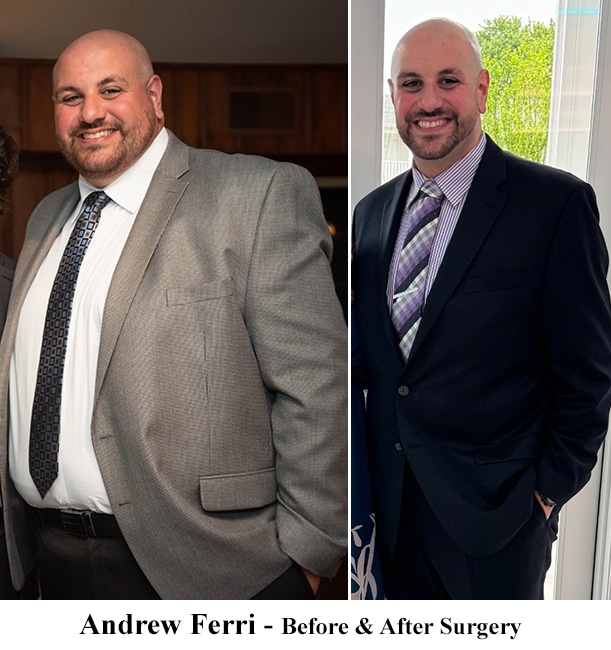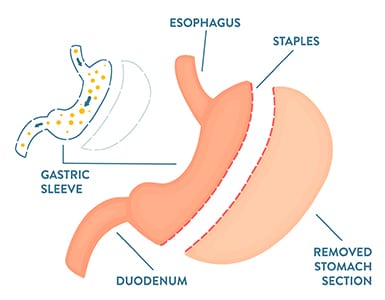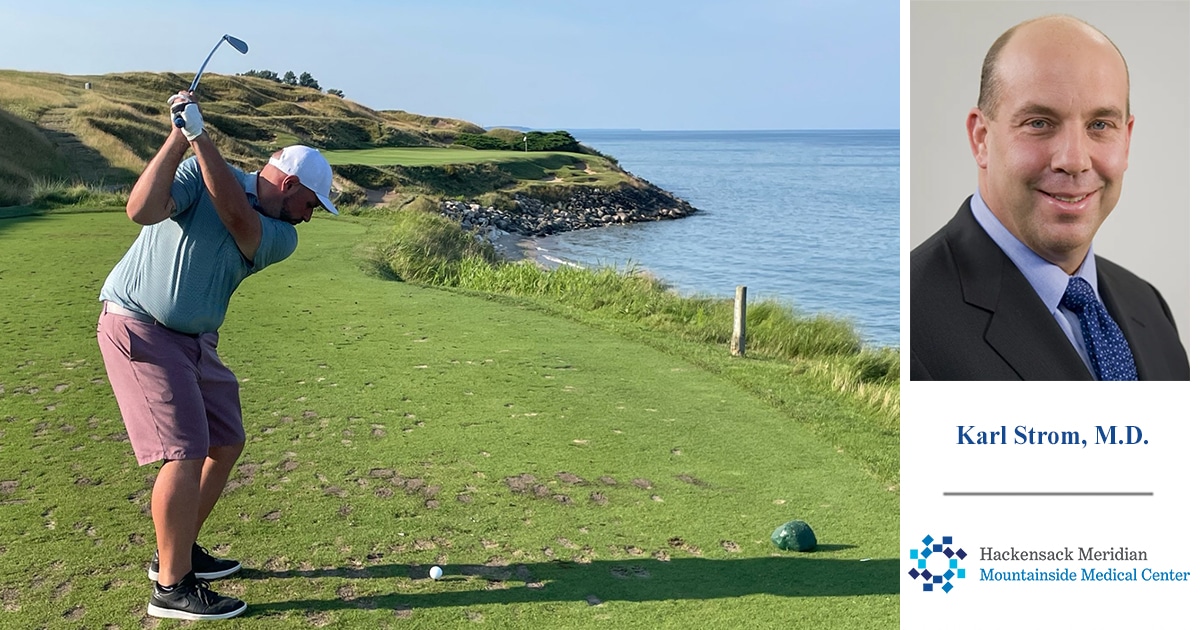The road to better health can be marked by potholes and detours that conspire to keep us from our destination: an active and healthy life.
Andrew Ferri knows all about this. Ferri, a traffic engineer, has struggled with his weight his entire life.
“I would feel tired and out of breath just by bending over to tie my shoes,” said the 35-year-old Bloomfield, New Jersey resident. “I work at home, which involves a lot of sitting. I was uncomfortable all the time and didn’t want to do anything. Even playing golf, I had trouble walking up a hill, so I drove a cart and rarely walked.”
At his heaviest, Ferri weighed 410 pounds, but it wasn’t his weight that first led him to seek the care of Karl Strom, M.D., a general surgeon at Hackensack Meridian Mountainside Medical Center.

“I made an appointment with Dr. Strom because I was considering surgery for my umbilical hernia,” recalled Ferri.
An umbilical hernia occurs when a portion of the intestine pushes through the umbilical ring muscle that surrounds the belly button.
“During my hernia appointment, Dr. Strom explained that with my current weight, the hernia could return even after surgery. He then asked if I had ever considered weight loss surgery, which I had not.”
Dr. Strom recommended gastric sleeve surgery and described the procedure and recovery period. After reviewing the preparations and the different steps he would have to take, Ferri discussed it with his family.
“A short time later, I called Dr. Strom’s office and set a date for bariatric surgery,” said Ferri. “I got ready for the surgery by attending meetings with Dr. Strom, his staff and even a dietitian to prepare me for life after surgery.”
Gastric Sleeve Surgery

Gastric sleeve surgery involves the removal of approximately 80% of the stomach. It keeps the stomach at the same length but with a much slimmer width, like a shirt sleeve. No changes are made to the intestines.
After surgery, patients eat much smaller meals and tend to have fewer cravings and hunger than they did before. This is because most of the ‘hunger hormone’ is created in the portion of the stomach that was removed. Removal of that portion results in much less ‘hunger hormone’ produced.
Ferri came through the surgery with no complications or surprises and was pleased with his post-surgical care.
“After my surgery, the nurses were great,” said Ferri. “They checked on me often, took my blood pressure and made sure I was staying hydrated. It felt like a well-oiled machine that ran very smoothly.”
Hitting the links with new energy
After recovering from his surgery, Ferri found that he had to change his eating habits to adjust to his smaller stomach, while still appreciating the foods he loves.
“I grew up in an Italian family, so we always had a lot of pasta or rice with our meals,” he said. “I had to learn that if I was going to enjoy it, I had to eat a small amount of it. If there were chicken cutlets or meatballs with the pasta, I’d eat more of the proteins.”
Once he was cleared for physical activities, Ferri returned to playing golf with his buddies as well as treadmill workouts and lifting weights. “The pounds have been coming off. I’m down to 260 pounds,” Ferri said. “It’s a lot easier now to walk the golf course and build muscle.”
His increased energy has also helped with daily chores around the house. “It used to be that after starting a load of laundry in the basement, I had to decide if I felt good enough to walk down and up the stairs. Now I just shoot down there and bring the laundry back up right away!”
Through it all, Ferri was very pleased with Dr. Strom and the team at Mountainside Medical Center. “They were very straightforward and encouraging every time I reported more weight loss,” he recalled. “Any time I called with a question they were always quick to get me the answer.”
For more information about weight loss surgery at Mountainside Medical Center, call 973-429-6500.

